Content from the Brookings-Tsinghua Public Policy Center is now archived. Since October 1, 2020, Brookings has maintained a limited partnership with Tsinghua University School of Public Policy and Management that is intended to facilitate jointly organized dialogues, meetings, and/or events.
To sustain progress toward making Taiwan more prosperous, secure, and respected on the world stage, Tsai Ing-wen will need to strike a balance between her domestic political imperatives and her relationships with Beijing and Washington, writes Ryan Hass. This piece originally appeared in the Taipei Times.
A confluence of factors is putting new stress on Taiwan’s strategic position.
First, President Xi Jinping (习近平) appears to have dashed any distant hopes that he would soften his approach toward Taiwan after consolidating power. During his closing speech to the National People’s Congress last month, Xi invoked China’s tradition of fighting “bloody battles” against its enemies. Xi also repeated his past admonitions on Taiwan, including his vow never to give up an inch of Chinese territory. Also, by removing term limits and undercutting the concept of collective leadership, there now are fewer checks against sharp shifts in Chinese policy.
Second, Beijing has become steadily more active in demonstrating its discontent with the status quo and its determination to pull Taiwan closer. PRC leaders have used a multi-pronged strategy of ratcheting up military pressure around Taiwan, shrinking its international space, and trying to compel Taiwan to integrate its economy with the mainland — and not apart from it. Through these actions, as well as Beijing’s stubborn unwillingness to meet President Tsai Ing-wen (蔡英文) anywhere close to halfway in terms of engagement, Beijing is dulling its attraction to people on Taiwan.
Third, Taiwan’s export-dependent economy could get further squeezed by external factors. Beijing likely will seek to obstruct Taiwan’s entry into regional free trade blocs, even as it works to hasten economic integration by attracting Taiwan’s top talent to the mainland. Additionally, as U.S.-China trade tensions ratchet up, the impact likely will reverberate in Taiwan given the integrated nature of cross-strait value chains.
Fourth, there is heightened risk of Beijing overreacting to what it perceives as the Trump administration moving closer to Taiwan. Many in Beijing suspect Trump is trying to play the “Taiwan card” in order to generate leverage. According to this logic, the synchronicity of Trump’s 301 trade announcement, the signing of the Taiwan Travel Act, high-profile visits by U.S. officials to Taiwan, and plans for a grand opening of a new diplomatic facility in Taipei are designed to push Beijing to make concessions on trade and North Korea — Trump’s top priorities — in exchange for American moderation on Taiwan. Few in Beijing appear to accept the reality that, in this instance, the synchronicity is a coincidence, not a conspiracy. Beijing’s anxieties are further heightened by John Bolton’s imminent arrival as national security advisor and Mike Pompeo’s nomination to become secretary of state, given each one’s well-documented support for Taiwan.
Under such circumstances, Beijing likely judges that anything short of absolute firmness in its approach to Taiwan will perpetuate attempts by Trump to play the Taiwan card to extract concessions. Beijing also fears that opening the door to horse-trading on Taiwan would invite other countries to follow suit, and that soon Beijing would find itself beating back attempts by others to move closer to Taiwan in order to gain leverage with the mainland.
Beijing likely will use visible American steps to strengthen ties with Taiwan as its rationale for intensifying pressure on Taiwan. Beijing likely views such an approach as serving several purposes: embarrassing Washington for its inability to shield Taiwan from pressure from the mainland; diverting focus in the U.S.-China relationship away from American priorities and toward Chinese sensitivities over Taiwan; deterring other countries from moving closer to Taiwan; and fomenting a feeling of vulnerability and isolation in Taiwan, in hopes that doing so provokes greater public scrutiny of actions that have the effect of elevating cross-strait tensions.
Finally, Taipei must manage the Trump factor. As Trump has shown with other allies and partners, he views the United States as shouldering a disproportionate burden in providing security, and he believes partners should find ways to reciprocate, either through arms purchases, more preferential trade arrangements, or some combination thereof. The more cross-strait tensions intensify and Beijing makes Taiwan a central feature of U.S.-China relations, the more likely the White House will begin asking hard questions about Taiwan’s burden-sharing with the United States. If this occurs, there likely will be added scrutiny of Taiwan’s relatively low defense spending and its market barriers for select American products.
For all of these reasons and more, Taiwan is entering an increasingly complex strategic environment, even though much of it is not of Taiwan’s making. President Tsai will need to strike a balance between her domestic political imperatives and her relationships with Beijing and Washington. Sustaining the status quo and refusing to bend to Beijing’s pressure will be important, but likely insufficient, to meet these mounting challenges. The Tsai administration will need to adapt to this new environment in order to sustain progress toward making Taiwan more prosperous, secure, and respected on the world stage.
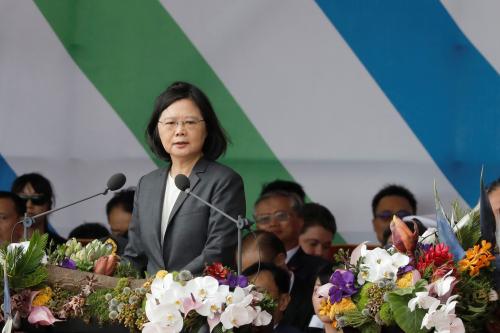
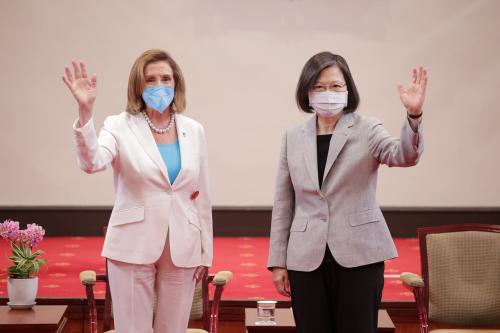
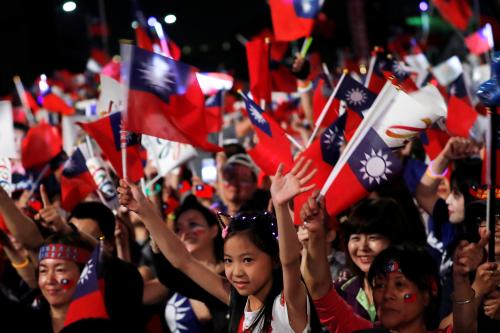
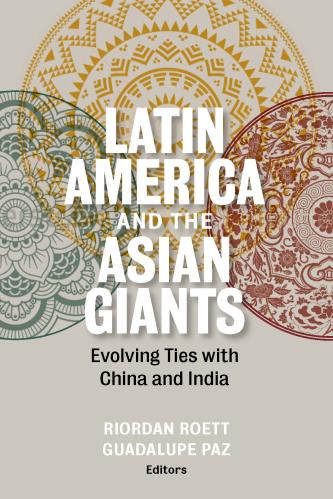
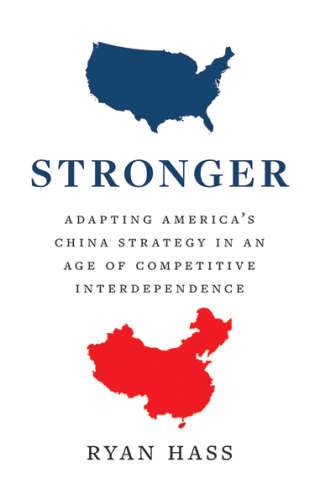
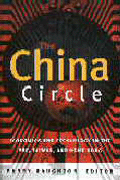

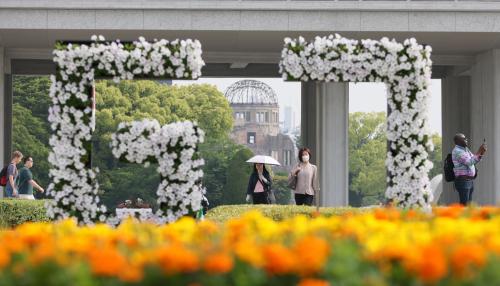
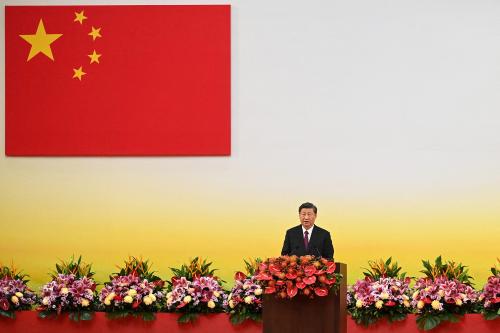
Commentary
Op-edTaiwan must adapt to a more complex strategic environment
April 9, 2018